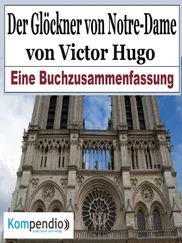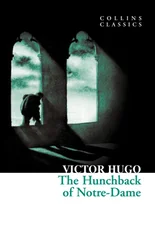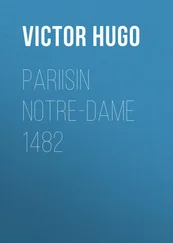“And I thought he was a smuggler,” Eugène-Olivier whispered to Jeanne.
“You thought?…” Jeanne clenched her fists. “You… you saw? You saw something?”
“An hour ago.”
Others also spoke. Some of the women wept. But the priest said nothing more. He turned and walked toward the wall. How could Eugène-Olivier not have seen the crucifix he was wearing right away? He now realized that the chest-high platform covered with a white cloth was the altar. The priest knelt. Silence fell. All that could be heard was the rustling of the pages of small books with many ribbons marking pages.
Eugène-Olivier welcomed the silence, which let him collect his thoughts. Where did the priest come from? If there was a priest, there must be a bishop; and if there was a bishop, there should also be a Pope. But there had been no Pope for some time. The last one had renounced the Throne of St. Peter back in 2031. The Vatican itself had been leveled to the ground a long time ago and was now used as a garbage dump for the entire city of Rome.
The little boy was still playing with his beads. How could Eugène-Olivier have not seen the small cross among them?
Now everything seemed different. The small images on the walls represented moments on Christ’s path to the Cross. Also hanging from the wall was a silver icon lamp that had not been used today. The altar was set apart by a symbolic barrier—two rope-lines, one in front of the other.
And how impressive, when one looked at it closely, was the cap on the priest’s head! Such caps were not even worn in the middle of the last century by the Lefebvrists, judging from the photos. It was a small, black cap, square in shape, with four corners and a tassel of soft wool.
The priest periodically removed the cap, pressed it to his breast, bowed his head, then put the cap on again.
During the silence of prayer, the muffled sobbing slowly faded. Then there was a whispering silence. The people were all doing things—reading from their books, murmuring prayers, making the sign of the cross, kissing small cards they pulled from their pockets—all except Eugène-Olivier. Finally, the priest arose.
“He really liked to carve wood,” Jeanne remarked aloud, addressing no one in particular. “He made everything they had on the farm himself—the doors and the furniture.”
“The hardest part was getting the wood,” said the long-haired old man with a smile. “Furniture factories today use wood right from the tree, before it has a chance to dry. That’s why it cracks. Simoulin bought barrels that were not fit for apple juice. Then he’d straighten the boards in water and let them dry. He said his work would last more than a hundred years. It was a whole philosophy. He would say that trees did not die when they were cut down if they were used to make something—but lived a new life, like man after his physical death.”
“And how he hated varnish!” added another man, also well on in years. “I remember he used to say ‘Wood needs to breathe! Imagine if I painted you with a coat of varnish. In a week I would have to bury you!’”
Everyone fell silent.
The priest announced, “I have forbidden Jacques le Difarre and young Thomas Bordelaise to even try to reach the place where he was stoned. One victim today is more than enough.”
“You were right, Father. The last attempt was unsuccessful, and we lost three more.”
People began to disperse. Before leaving, groups of them knelt before the priest, as in old times. He would hold up his hand, make the sign of the Cross in the air and say:
“Benedicat vos omnipotens Deus, in nomine Patris, et Filii, et Spiritus Sancti.”
Latin! Eugène-Olivier had studied Latin with his Grandfather Patrice, but he’d never finished his studies.
“Who are these people?” whispered Eugène-Olivier.
“You’ve never met them before? They let us use their shelters. Sometimes they hide with us, too. But they don’t fight the Saracens, they just keep the liturgy. They don’t want to fight. They believe that the Crusades can’t be repeated, and that there can be no more good on Earth. Until Judgment Day, they simply want the Mass to continue to exist as long as there are even a few Christians. There are three parishes in Paris. Christians began in the catacombs, and now they are going back to the catacombs.”
“But where do they live?”
“In the ghettos.”
Eugène-Olivier was startled. He often went to each of the five large ghettos of Paris where the defeated French lived who refused to convert to Islam. Their life behind barbed wire was miserable and hopeless, with horrible poverty and misery. There were daily deaths at the hands of policemen—who considered “infidels” equal to dogs. But the ghetto residents took great pleasure in spitting at the cries of the muezzin while sitting in a street cafe, knowing that the collaborationists in their luxurious houses on the other side of the barbed wire were fearfully on their way to a mosque to bow on their faces toward a rock thousands of miles away, with their rear ends in the air.
It was mortally dangerous to make wine in the ghettos. Women went out of their houses with scarves on their heads because if they were seen scarfless, the police had the right to kill them. But they did not cover their faces!
The inhabitants of the ghetto remained French. They taught their children as best they could, even though there were few books left. Every Astérix comic book, every Babar the Elephant book, was falling apart, handed down from generation to generation as long as anything could be discerned on the worn pages. Sometimes there were random police raids on the ghettos, depleting these small, personal libraries even further.
But there was something much worse. Occasionally, whether arbitrarily or as part of some strategy, the religious police would decide to harass one family. An imam would start visiting the house. Young assistants who were even more aggressive would follow him.
It was painful to look at the petrified faces of the family members. They knew, as did everyone around them, that in three months—no one knew why it was exactly three—in the morning the neighbors would see either a moving truck transporting the new converts to a Muslim quarter, or an empty house or apartment with closed blinds and the door swinging open. On the thresholds of the empty dwellings, young people would sometimes take the risk of lighting candles.
So there were believers living in the ghetto!
“Where did they come from? Didn’t the Pope dissolve the Church?”
“He had no authority to dissolve it. Christ told them from the beginning that the gates of hell shall not prevail against His Church.”
“Why do you keep saying ‘them’? Aren’t you one of them?”
“I’m from the Maquis, ” Jeanne said irritably. “No, I’m not from here. Don’t ask me any more questions, OK?”
Well, fine, if I’m not supposed to ask any more questions, I won’t. But if Jeanne was in the Resistance Movement—but not the one led by Sevazmios, since they had never met—that meant they would see each other again. If he asked her point-blank if he could see her again, she would know why, and she would surely tease him. And how could he ask her anyway, since they had practically just met? No, far easier to blow up ten more qadis! He didn’t have to propose or ask them anything! He had to spend at least 24 hours here. What about her?
“Let’s go talk to Father Lothair,” said Jeanne, jumping up. She had no doubt that Eugène-Olivier would follow her.
Oh, what a name, Lothair! The smell of heraldic lilies permeated the half-darkness of the underground. There had been some snobs in the Lévêque family, but not even they had gone to such extremes. However, Eugène-Olivier did not want to talk to the priest, even if he was called Father Peter.
Читать дальше
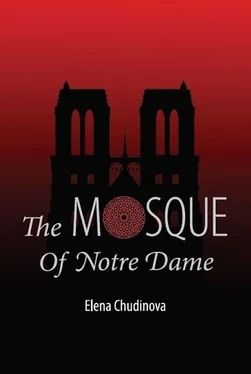

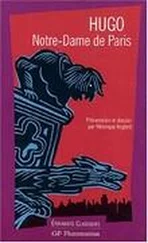
![Виктор Гюго - Собор Парижской Богоматери [Notre-Dame de Paris]](/books/30985/viktor-gyugo-sobor-parizhskoj-bogomateri-notre-thumb.webp)





